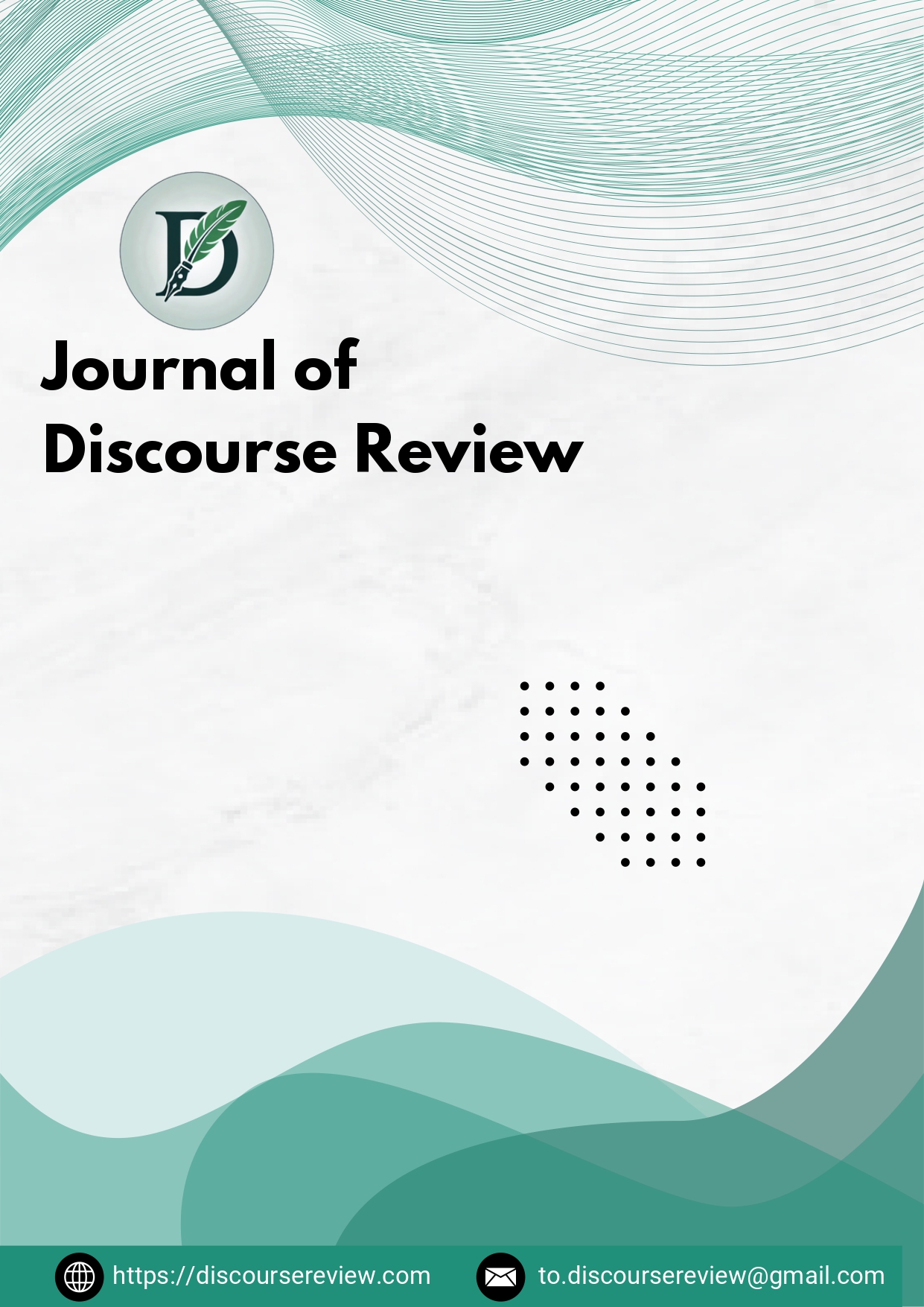Aim and Scope
Journal of Discourse Review is an interdisciplinary journal dedicated to critically examining the
relationship between language, society, and culture through the lens of contemporary discourse
research. The journal emphasizes the exploration of mediated and multilingual communication,
promoting a deeper understanding of how discourse shapes and is shaped by cultural norms,
power structures, and societal transformations.
Themes for Contribution
We invite submissions addressing any of the following themes:
- Language and Power: Discourses of inclusion and exclusion.
- Globalization and Local Narratives: Discursive responses to societal change.
- Technology, Communication, and Society: Examining the role of technological advancements in shaping communication.
- Cultural Practices and Identity through Language: Exploring the relationship between language and cultural identity.
- Climate Discourse: Addressing language, responsibility, and change in discussions about the environment.
- Health, Discourse, and Society: Investigating how discourse shapes health-related narratives.
- Geo-Political Rhetoric and Public Opinion: Analyzing the language of political rhetoric and its societal implications.
- Education and Critical Discourse: Reimagining learning spaces through critical discourse.
- Gender, Discourse, and Social Change: Exploring gender dynamics and societal transformation through language.
- Migration, Mobility, and Multilingual Discourses: Studying migration and the role of multilingualism in shaping discourse.
- Digital Humanities: Examining the intersection of discourse analysis and digital tools, methods, and platforms, highlighting their impact on language and communication.
- World Englishes, ELT Practices, and Professional Development: Exploring the evolution of English as a global language, its implications for English Language Teaching (ELT) practices, and professional development in educational contexts.
What the Journal of Discourse Review Seeks?
- Original Research: Submissions that systematically analyze discourse in mediated, multilingual, and cross-cultural contexts.
- Innovative Perspectives: Papers that offer new insights into the interplay between language and social forces, challenging conventional frameworks and broadening our understanding of discourse.
- Interdisciplinary Focus: Research that prioritizes discourse, language, and communication, rather than treating media, technology, or societal phenomena as standalone topics without linguistic analysis.
What Constitutes Relevant Discourse Research?
- Impact of Mediation: Studies that investigate how media platforms, technological affordances, and multilingualism influence discourse practices, including creation, transmission, and interpretation.
- Socio-Cultural Dimensions: Research exploring the ideological, cultural, and identity-based implications of mediated discourse.
- Linguistic and Multimodal Analysis: Discourse analysis rooted in diverse data sources, such as social media interactions, news narratives, and multilingual communication, with a focus on understanding processes of mediation.
- Methodological Rigor: Employing robust and diverse methodologies that directly engage with the nuances of mediated discourse, rather than merely applying existing frameworks superficially.
What Is Not Within the Scope of the Journal?
- Surface-Level Analysis: Superficial exploration of discourse data collected from media platforms without contextual or mediated insights.
- Theoretical Discourse without Data Analysis: Studies discussing theoretical constructs without applying them to actual discourse data.
- Descriptive Comparisons: Comparative studies of linguistic or cultural datasets that do not link findings to broader discourse mediation processes.
- Methodology-Driven Research: Papers that apply methods like content analysis or sentiment analysis without addressing how mediation shapes discourse.
General Guidelines
- While the journal encourages submissions drawing on diverse media and multilingual contexts, research must address how mediation influences discourse.
- Studies that focus purely on regional or platform-specific phenomena, without connecting them to mediation or discourse dynamics, may fall outside the journal’s scope.
- Researchers are advised to carefully review the above “What Is Not Within the Scope of the Journal" section, as these areas often lead to rejections.
- For clarity on scope and suitability, prospective authors are encouraged to contact the editorial team before submission.
By maintaining these standards, Journal of Discourse Review aims to establish itself as a leading platform for critical scholarship, promoting meaningful conversations across disciplines and cultural boundaries.

